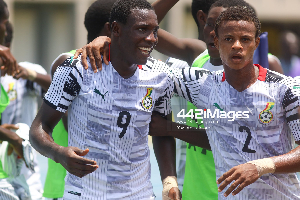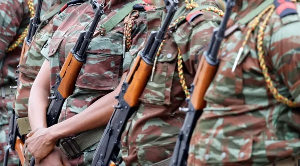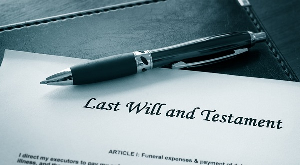There is nothing more unacceptable in sports, or in life for that matter, than to continually fail on a perennial basis, and not because of a lack of talent or potential, but as a result of refusing to learn from past mistakes. How else can a country with a strong reputation for producing many of Africa’s premier sprinters and jumpers year in and year out be called the “most stagnant and failure prone federation around”? The answer is simple. Poor administration and supervision of the administrators (and coaches)! All it takes is the efficient utilization of resources, and tapping of the available expertise and knowledge of citizens craving to help (including previous sportsmen and sportswomen). simply, it is about organization.
The fundamental approach to the organization of athletics in Ghana has not changed over the past 20 years despite the numerous, albeit circular, administrative changes. A quote from Mr. Kodzie, former chairman of the Ghana Amateur Athletic Association (GAAA) sheds light on the past and prevailing ideology on organization of athletics in Ghana. He said, “Athletics is easy to organize given how quick you can get athletes together for a competition”. This is a statement he made 11 years ago during the S.C.S.A zone 3 juniors competition between Ghana, Ivory Coast and Nigeria. If the same simplistic thinking is not currently at work, then what other explanation can there be, given the numerous changes in personnel over the past 2 decades.
The flaws in our approach to organization can be broken down into 5 areas and they are 1) Effective and regular communication between athletes and officials (including coaches), 2) Appropriate and timely financial aid to athletes no matter how little, 3) Realization that to a major extent, sports in today’s world is a business and should be treated as such, 4) Establishment of accountability, justification and transparent procedures with regards to finance, performance goals (lack of/achievement of), and decision making, and (5) Open, fair, justifiable, and transparent criteria for the selection of athletes to ALL competitions. First, I wish to comment on “communication” and why officials and athletes seem to be on totally different frequencies.
I am writing from the perspective of an athlete and although I am sure the GAAA will disagree with me on some issues I believe it is time that the public gets to see the problem through the eyes of an athlete. For those who would like to know why I think I am sufficiently qualified to comment on the plight of athletics, the following is a small part of my contribution to the history of Ghana athletics. a) International Olympic candidate (Sydney 2000) for the International Athletes Commission. b) Ghana long jump and triple jump record holder. c) 3-Time African triple jump champion (1998, 2000, 2001). d) African Championships triple jump record holder. e) World Cup participant in Athletics, representing Africa in the triple jump (1998). f) World Championships finalist (1997). g) Commonwealth Games Silver medallist, 1998 (Triple Jump) h) NCAA long jump champion and 8-Time All American (NCAA Athletic Championships). From an educational stand point, I believe a Masters degree in Sports Administration and Management lends credence to my observations and comments (I am currently working on my PhD in the same area).
Before I comment further on “communication” between athletes and officials, I want to acknowledge that the GAAA is at the mercy of the Ministry of Finance or Government when it comes to the allocation of money. Still, I strongly believe that even the little that is made available to the GAAA should have led to more success than we have had, but has not because the current system is not set up for efficient use of the available resources. Here is how the lack of effective, genuine and timely communication plays a big role in this problem.
The lack of effective communication, misuse of the existing communication channels, and inappropriate selective communication between officials and athletes has always been, from my perspective, a big reason for the multitude of problems plaguing athletics in Ghana. Communication in any organization is essential for basic survival, not to mention the role honest communication plays in fostering commitment and motivation. A major complaint from the Ghana Amateur Athletic Association has been the lack of reporting of performances by athletes (overseas) during the course of the season, and that when the athletes do report, some send in fictitious performances there by compromising the selection process. I find it amazing that despite the proliferation of access to the internet in Ghana over the past three years, the latter accusation has been made at least twice in the past two years. Besides, in both of those cases, there is hard evidence that the GAAA did actually get notified of the ficticious results BEFORE they did their selections. In other words, why deliberately chose to ignore the evidence that the results were ficticious, and then turned around to use that to explain lack of success, after the fact? Going back to Atlanta, there is evidence that the same was true.
Further evidence that the actions are deliberate come from the fact that in the past three years, different athletes including myself have given the members of the coaching staff, the website address of the International Association of Athletic Federations (IAAF) where they can verify reported performances? Current world rankings of all events in athletics are updated weekly on that website. Even better, I personally gave a second web address to an international athletics site where world rankings in athletics are updated every two to three days.
Currently, the GAAA does not even have an email address, the fastest and most cost-effective and reliable form of communication there is. This is inexcusable given that some of the local athletes have email addresses through which they communicate with athletes overseas. For an organization whose favorite line is “castle has not released the money yet”, it is sad that the basically costless option of email has not been taken advantage of.
It is also true that no athlete that I am aware of has any knowledge of the “whys” and “hows” of the many decisions reached at GAAA meetings. In the democratic dispensation of today, where accountability is expected even of the government, it is inappropriate for selections and other decisions to be shrouded in secrecy. Oftentimes, one finds that actions that have been taken cannot be justified by the explanations that were given earlier. But, very often, the discovery of ambiguity occurs too late (whether by design or not) for the affected party to look for a remedy. A classic case of this regards the fiasco of our disqualification from the Olympic 4x100 meter final in Atlanta (1996). That was Ghana’s best chance to date of winning an Olympic medal and, unfortunately, the true story has not wholly been told to the Nation yet.
Most of the GAAA’s accusations about foreign-based athletes have centered on problems of communication. Yet it is mind boggling that there is no position on the GAAA for a representative of these same athletes (who should be nominated by the foreign-based athletes). Even when Francis Dodoo was appointed an Olympic Ambassador by former Minister for Sports, Mr. E.T. Mensah, he was never privileged to know the decision-making process in the organization. How on earth does the GAAA manage to make decisions that affect this group of athletes without ever seeking their collective opinion (even if via a representative)? And how does GAAA figure out whether their decisions are compatible with the plans or training of these foreign-based athletes? Indeed, it would be counter-productive to give an inconsistent guideline to an athlete (in April, or even July) who has been on another program for eight months prior to that, without at least seeking to understand what that athlete has been involved in. Athletic administration in Ghana, I submit, is geared towards going to competitions, rather than succeeding at competitions. When athletes have pointed out the inconsistencies between what the GAAA is proposing late in the year and what they have been doing, they are usually labeled “too-known” or tagged with even less complimentary names. What is even sadder is that these same athletes, as a group, are not being tapped as a resource with regards to organization outside of Ghana given their collective experience and a readily available network of contacts.
As part of the GAAA ‘s communication strategy, it puts out a program detailing dates for competition and camping events. Often, this program which is published in the press, gives the Ghanaian public the perception of organization and fine sense of direction. Unfortunately, many people outside of athletics do not realize that perhaps the most important dates on these programs, i.e. those of training camps, are the most problematic in the sense that they typically conflict with foreign athletes other obligations. For example, the GAAA often demands that athletes make provisions in their competition timetables to accommodate the training camp period. Unfortunately, these training camps never start when they are supposed to and when they do, there always seems to be no money to take care of the accompanying bills.
A classic example happened last year (2000) when the chief athletics coach was held hostage by our Dutch hosts in Holland until hotel bills were settled. Some may argue that the GAAA is not to blame but the government, for not releasing funds on time. But the point is, why hold a training camp with a fixed date (not tentative) when the budget is never approved on time? How are athletes supposed to focus on training when they have no idea whether or not they may be thrown out of the hotel the next day for unpaid bills? Or worse, how do you train with the anxiety of not knowing if there is enough money available even for meals?
In addition, venues that are the more expensive and least adequate for the needs of our athletes are often the ones that are chosen, when there are less expensive but better equipped locations. I dare anyone to show me the budget for training camps over each of the last 3 years and I will provide estimates for an alternate cheaper and better-equipped location. In other instances that I know of, the cheaper alternatives presented to the GAAA have actually been dropped in favor of more expensive ones. It almost comes across, sometimes, that GAAA spends more money than it should on camping, or that there are specific venues that certain officials want to go to even when cheaper alternatives are presented.
And this latter problem is an example of how the GAAA’s failure to tap the expertise and knowledge of foreign-based athletes leads to wasted resources. None of us, i am sure, will try to buy a car from a dealership in another city based on the word of a salesman (in this case, the person who is renting you the facilities in the country you have chosen, or a person who in one way or the other is related to that person). Rather, you are much more likely (or, at least, better served) to ask a friend who lives in that city and is knowledgeable, or is willing to investigate, about the car business to review the offer made to you. Yet the GAAA rarely consults and has yet to accept the advice of any foreign-based athletes when selecting training camps outside Ghana. Last year, based on the estimates presented as training camp costs, the GAAA could have saved over $6000 had an alternative site in Finland that was proposed been accepted.
Last but not least, provisions are never made for medical insurance. Therefore since the GAAA is always out of money, is it worth the risk for our top athletes to go to these camps? Don’t get me wrong, because I am all for training camps. Not only because it builds moral and comradeship but the all-important cohesiveness that the relay teams need in order to function as a unit. However for some of our elite athletes, athletics is a job. And so why should they risk the opportunity to earn a living by attending a training camp that gives no guarantee of covering their basic expenses?
Unfortunately, of the many Ghanaian athletes abroad, the few who fare well on the international circuit will tell you that the GAAA had almost nothing to do with their success. Rather they name other obscure people, the true “heroes of Ghana Athletics”, for going out of their way to help fund their training even to represent Ghana. These heroes include, but are not limited to, foreign coaches and universities whom most of our athletes also represent. Yet neither the GAAA nor the NOC has ever (that I know of) sent a “thank you” note to any of these individuals/entities.
Spare me the usual speech about being patriotic because the last time I checked, even communist Cuba invests money in sports. Yet Ghana expects its athletes to win medals without any prior investment. Case in point, no athlete (foreign based) received a cedi, pesewa or a dollar prior to the Sydney Olympic games. Rather, athletes were given $1000 at the games. Forgive me friends if I come across as sarcastic, but what good is a $1000 if it comes too late to help prepare athletes for the games? We would prefer to do well at the Games, not afterwards!














